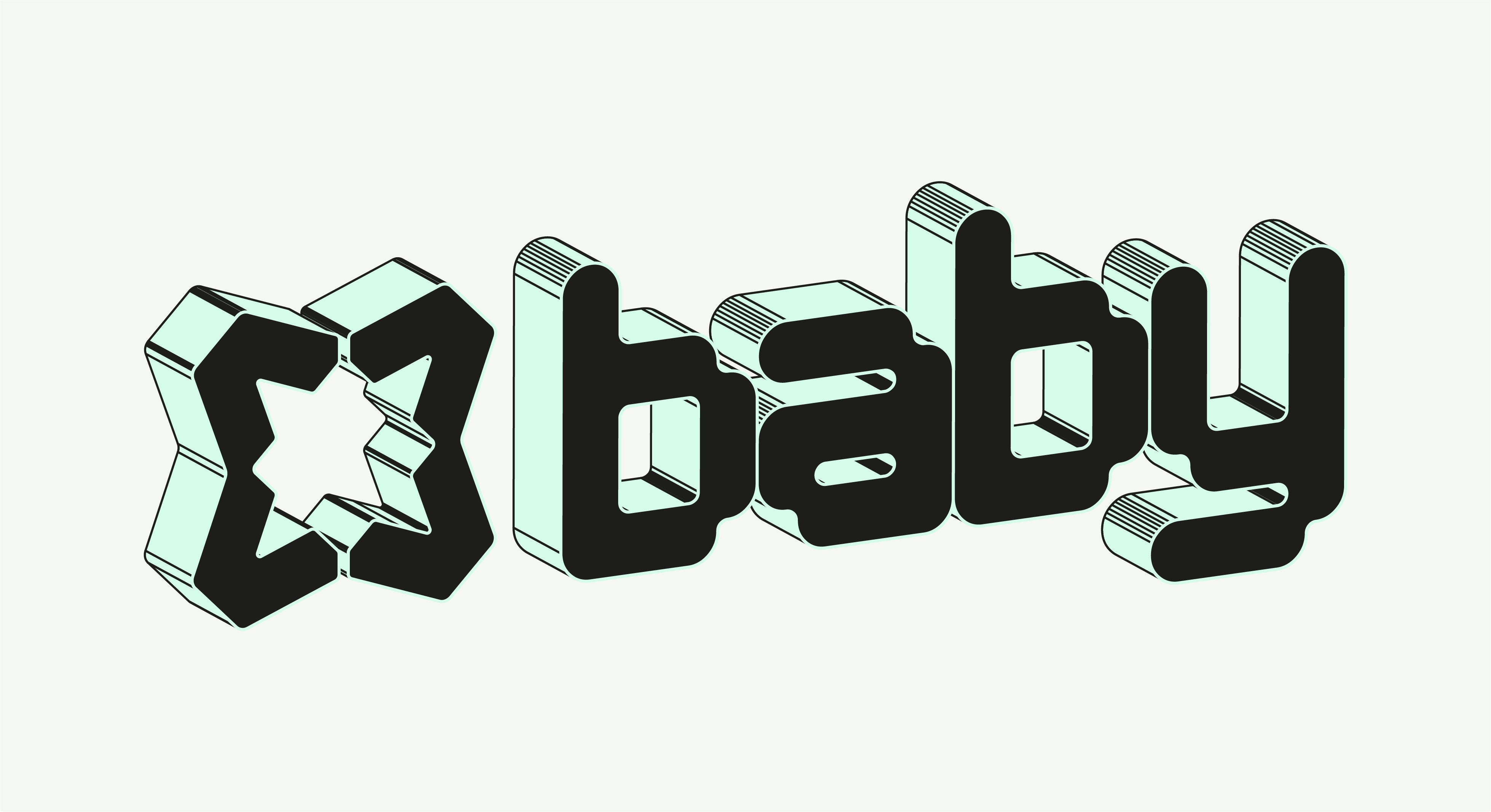🔑 Key Takeaways
- BABY is the native gas and governance token of the Babylon Genesis network, a Bitcoin-supercharged Cosmos SDK Layer-1.
- Used for paying transaction fees, voting on upgrades, and dual-staking alongside BTC to secure the network.
- 8% annual inflation funds rewards, split between BTC and BABY stakers.
- Deflationary burn mechanism: BSN rewards are auctioned for BABY, with bids burned.
BABY is the native gas and governance token of the Babylon Genesis network, a Bitcoin‑supercharged Layer‑1.
BABY can be used to pay transaction fees, vote on protocol upgrades, and secure Babylon genesis alongside BTC in a dual-staking model (meaning both BTC and BABY can be staked to help secure the network).
BABY launched with an initial supply of 10,000,000,000 tokens and is inflationary at 8% per year, with rewards currently split evenly (4% to BTC stakers and 4% to BABY stakers). As of September 2025, 2.6B tokens are in circulation.
Following a governance proposal, Babylon Genesis will also introduce a deflationary mechanic:
- BSN staking rewards sent to Babylon Genesis will be auctioned on-chain.
- Bids will be denominated in BABY, and the winning bid BABY will be burned programmatically.
- This burn mechanism adds deflationary pressure while keeping staking rewards in a single token.
Governance is conducted on‑chain by BABY holders (BTC stakers don’t vote), so policy changes like fees or inflation are decided through BABY‑based voting. For the latest parameters, please refer to the public tokenomics page.
What BABY does on Babylon Genesis
Babylon Genesis is the first Bitcoin Supercharged Network (BSN), a Cosmos-SDK chain that effectively taps Bitcoin’s existing economic security. Babylon Genesis’ BABY token serves three core functions:
- Gas Token: Used to pay transaction and smart contract fees.
- Governance Token: BABY holders vote on upgrades and parameter changes while earning BABY rewards. If you delegate your BTC, the validator you delegate to is responsible for voting on your behalf.
- Security: BABY stakers secure the network to earn additional BABY tokens.
The design and utilities of BABY work to align incentives between validators, Finality Providers, BABY stakers, and, thanks to dual-staking, BTC stakers on a Bitcoin-anchored security plane.
Distribution and unlocks (high‑level)
- Community incentives: 15% (unlocked; managed by the Babylon Foundation)
- Ecosystem building: 18% (3‑year unlock; 25% at launch, remainder linearly from year one)
- R&D + operations: 18% (3‑year unlock; same schedule as above)
- Early private investors: 30.5% (4‑year schedule; first unlock at 12 months)
- Team: 15% (1‑year cliff, then 3‑year linear; first unlock at 12 months or service anniversary)
- Advisors: 3.5% (4‑year schedules)
Where Rewards Come From
Initial Airdrop: To bootstrap the community and reward early participation, the Babylon Foundation allocated 600 million BABY (6% of supply) for early adopters (Phase‑1 BTC stakers, Pioneer Pass NFT holders, and open‑source contributors) distributed around the Babylon Genesis launch with category‑specific rules and timelines.
Today (September 2025): Babylon Genesis uses a dual‑staking model. Stakers of BTC and stakers of BABY both help secure the chain and receive BABY rewards. Finality providers, specialized actors who participate in the finality process, are a key part of this security path for BTC stakes.
Tomorrow: As more BSNs join Babylon Genesis, the BSN reward auction mechanism is expected to become a growing source of BABY burns. Each BSN that integrates with Babylon Genesis will direct a portion of its staking rewards to the on-chain auction, where participants bid in BABY for those rewards. The BABY used in winning bids is permanently burned, introducing ongoing deflationary pressure. Over time, as BSN participation and auction volume increase, this mechanism could significantly reduce circulating supply while maintaining BABY’s role in governance, fees, and network security.
Risks & Things to Consider
Token supply dynamics: BABY has a fixed 8% inflation for staking rewards, now partially offset by a burn-based auction model for BSN rewards. The net effect depends on network activity and governance parameters.
Vesting unlocks: Allocations for investors, team members, and advisors will still enter circulation according to their vesting schedules, impacting net supply changes.
BTC staking risks: BTC remains on Bitcoin but can be slashed if delegated operators misbehave. Stakers must understand finality providers, slashing conditions, and diversification before staking.
Summary
BABY is the utility token of Babylon Genesis. It pays for transactions, confers governance, and, together with staked BTC, secures a network designed to export Bitcoin‑grade economic guarantees to other chains. If you’re a retail user with basic crypto familiarity, the mental model is simple: BTC supplies the economic weight; BABY coordinates the chain.
As BSNs roll out and multi‑staking matures, BABY’s role as a fee token, governance asset, and security incentive remains central to how Babylon turns idle BTC into productive, verifiable security for Web3.


